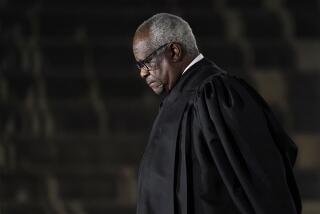Eat Your Heart Out, Enron
- Share via
The title of a 517-page report detailing how media executives Conrad M. Black and F. David Radler allegedly shook down shareholders of Hollinger International for $400 million says it all: “A Corporate Kleptocracy.” The investigation commissioned by the company, which owns the Chicago Sun-Times and the Jerusalem Post, describes accounting chicanery that would turn an Enron executive green with envy. It also raises more questions about high-powered corporate boards that somehow fail to notice when things go badly awry.
Along with the de rigueur corporate perks -- a Gulfstream jet, a Bora Bora vacation and a $42,870 birthday party for Black’s wife at a pricey New York restaurant -- investigators describe expensive, self-serving management contracts for Black and Radler and business deals structured solely to benefit their bank accounts. Investigators say Black invited Richard N. Perle, former defense advisor to both the Reagan and George W. Bush administrations, to join a powerful executive committee that in effect ran the company. The result, investigators say, wasn’t pretty. “Hollinger wasn’t a company where isolated improper and abusive acts took place. Rather, Hollinger was a company where abusive practices were inextricably linked to every major development or action,” said the report, commissioned by the current board and investors who are seeking $1.25 billion from Black and others.
Unanswered is how the star-studded board of directors failed to notice anything amiss, even as Black and Radler allegedly robbed the company of nearly all its earnings over seven years. The report suggests that most directors were duped or misled, but its authors demand that Perle return more than $3 million in compensation. Perle has told a reporter that he too was duped by Black. Investigators aren’t buying that defense.
Boards of directors are supposed to prevent this kind of looting, but as countless cases have proved, board members can be a deeply malleable breed. The Securities and Exchange Commission has proposed a reform that would give large shareholders at least minimal power to remove board members, but it has bogged down amid election-year politics. The Enron fiasco apparently wasn’t enough to convince business interests that such reforms are overdue; maybe the Hollinger mess will give them a clue.
More to Read
The biggest entertainment stories
Get our big stories about Hollywood, film, television, music, arts, culture and more right in your inbox as soon as they publish.
You may occasionally receive promotional content from the Los Angeles Times.










